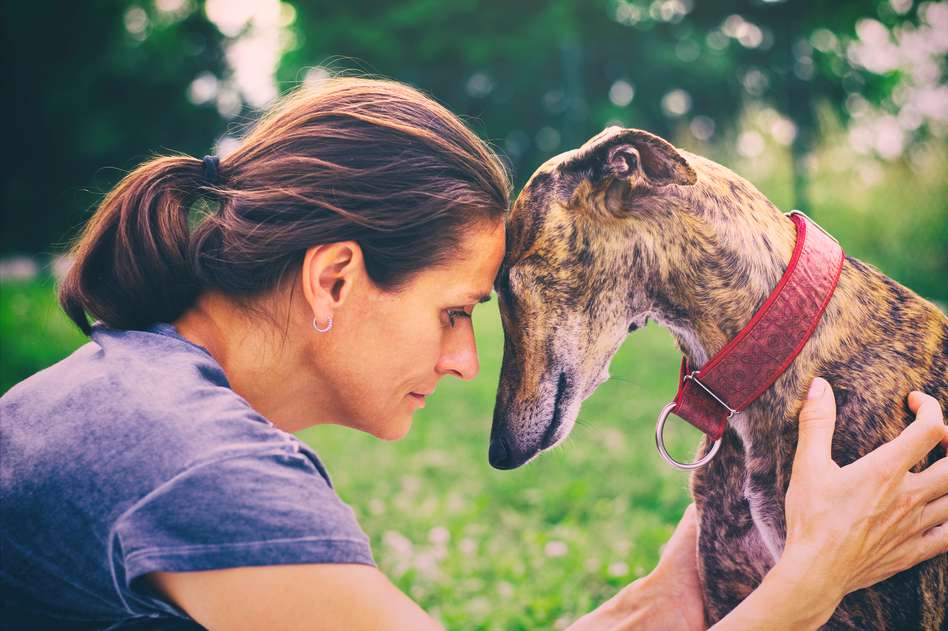Families and divorce
Pet-nuptial agreements – plan ahead to save heartache

Only 1 in 14 couples with pets in the UK currently have a pet-nuptial agreement in place and one charity, the Blue Cross, takes in around 4 pets every week because of divorce or separation. Planning ahead about how to take care of pets, in the event of a split, can help save some heartache.
Pets play a central role in families and many people have a significant emotional attachment to them. People often refer to pets as being ‘one of the family’ and when a pet dies it’s common to feel loss and grief. Pets are becoming increasingly relevant in discussions with lawyers and mediators in divorce and separation negotiations, alongside considerations about children and finances. Animals and our relationship with them are by their very nature, emotional, and without an agreement in place, the conflict over pets can add a distressing element to what may be an already volatile situation.
- Pets as assets
- What is a pet-nuptial agreement?
- Is a pet-nuptial agreement legally binding?
- What will you be agreeing to?
- Pets with financial value
- How does divorce affect your pet?
- Should a pet be shared?
- How to make a pet-nuptial agreement
Pets as assets
Currently in the UK, the law regarding pets during a break-up or divorce, is the same as the law for assets, such as a television or a car. Treating pets as possessions has no regard for the emotional attachment which the owners, or their children, may have for the pet.
A court, if asked to decide on who should get the pet, would focus on:
- who paid for the pet in the first place
- who has funded it’s care (food, vet bills etc)
- which of the parties are financially stable enough on their own to support a pet
- if there are outstanding and particularly expensive veterinary costs, these can be included in the financial settlement
- which partner has the most suitable home for the pet.
What is a pet-nuptial agreement?
A pet-nuptial agreement is a pre-arranged plan puts the pet’s needs at the heart of the matter. It allows you to both agree beforehand where your pet will live, if you and your partner break-up. So it takes away a lot of the uncertainty and reduces the range of things you and your partner may be arguing about when and if you split up.
It’s important when creating your pet-nuptial agreement that your pet's wellbeing is the main focus of the agreement. Of course you and your partner can resolve any disputes regarding your pet without talking to lawyers, as long as you can both come to an arrangement that you can both agree on. However, a pet-nuptial agreement takes the uncertainty of a potential future conflict by getting the details of the agreement down in writing. As well as being very important for your own peace of mind with regard to your pet’s future, it’s also important for your pet. Pets that are handed into charities, such as the Blue Cross, often suffer from emotional trauma. Arranging it so your pet has a pre-agreed home following a break-up or divorce can minimise this stress.
Call our specialist solicitors on 0808 231 1320
Is a pet-nuptial agreement legally binding?
No, it’s not legally binding in the UK, however, if your case ends up in court, a prenuptial agreement goes a long way to inform the discussion and final decision by the court.
What will you be agreeing to?
By taking custody of your pet within the pet-nuptial agreement, you are agreeing to follow the laws and welfare needs set out in the 2006 Animal Welfare Act these include:
- the need for a suitable living environment
- the need for a suitable diet
- the need to be able to exhibit normal behaviour patterns
- the need to be housed with, or apart, from other animals as needed
- the need to be protected from pain, suffering, injury and, disease.
Pets with financial value
Some pets do have a financial value as well as an emotional value. There are many breeds of pedigree animals which cost eye-watering amounts of money to buy. Also, some pedigree animals are involved in breeding which means they have a financial value in terms of their future litters. Pets may be prized for their success in shows, such as cat or dog shows. Or you may even have a pet that generates money from advertisements or catalogues – or is even starring in the movies! While it’s unlikely your cat is a YouTube star with its own following, if there is any financial value associated with your pet, it’s even more vital that you consider getting a pet-nuptial agreement sorted out, before any arguing starts.
How does divorce affect your pet?
The uncertainty that follows a divorce or separation can upset your pet’s routine. You may move the pet’s home and if so, it’s important you give your pet time to adjust to its new surroundings. It’s equally important for your ex-partner to see the pet, especially if they have a strong bond with one another as sustained separation can affect a pet psychologically.
Should a pet be shared?
Animal charities such as the Blue Cross or The Kennel Club advise that sharing a pet is not a good idea, as it can be upsetting and negatively affect their well-being. The same goes for when splitting up animals who were together before the divorce, as this means they lose their companion. It’s suggested that the best route is for one primary care-giver to look after all the pets who are close to each other.
How to make a pet-nuptial agreement
If you and your partner are looking to create a pet-nuptial agreement, you can contact us and we will create a bespoke agreement for both you and your partner. In preparation for making your pet-nup agreement, you and your partner should:
- have an idea of who is going to be the primary carer
- know how the costs of looking after the pet will be shared between both parties. This includes general living costs, which can be high, for example, if you need a dog walker or dog crèche, as well as vet treatment the pet may need
- have thought about the amount of time the partner who is not keeping the pet, gets to spend with the pet, should they want to. In the case of dogs this is likely to be straightforward as the dog can probably go and visit the other person or be taken for walks, but it can be more complex for cats who generally are not that happy to be moved about. So it’s possible your ex-partner may be asking to visit the pet in your home. It’s helpful to think about these things in advance.
Once agreed, we will create your bespoke arrangement and send both parties a copy for you to keep safe - and hopefully never need to use.
We’re here to help
Our family and divorce lawyers are based in:
Cambridgeshire: Cambridge
Essex: Brentwood, Chelmsford, and Saffron Walden
Hertfordshire: Bishop's Stortford and Royston
But we can help you wherever you are in England and Wales.
Chat to the Author, Caroline Andrews
Senior Associate, Families and Divorce, Brentwood office
Meet Caroline
- Areas of expertise
- Accreditations
- Testimonials
Legal 500 UK 2024
'Caroline Andrews has made what seemed impossible, possible. She explained every step of my divorce in understandable terms and ensured I received an amazing outcome'
Legal 500 UK 2021
'Caroline Andrews is an exceptional practitioner. She works closely with Louise Margiotta as part of the team and is very approachable. She has an in-depth knowledge of family law and utilises this to ensure the best outcome for her clients'
Ms. D. C.
Leigh-on-Sea
Caroline Andrews has helped with my divorce and with two separate child arrangement orders. Her advice is easy to understand and she has been a tremendous support to our family during some very tough times. Thank you once again for all that you have done over the years, for me and my kids.


